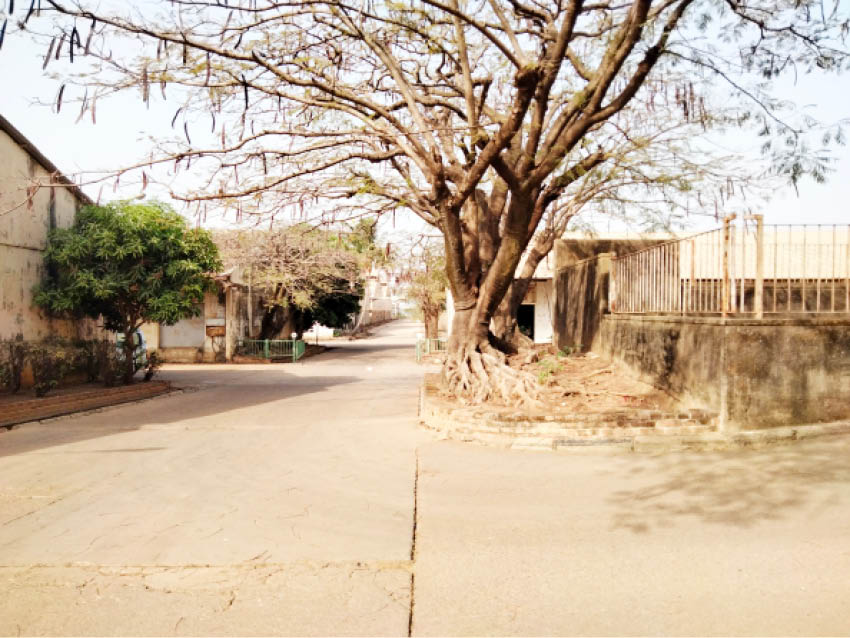Nigeria’s textile industry is, once again, heading for a total collapse as the management of the United Nigeria Textile Limited (UNTL) recently sacked 300 of its workers, which constitutes 30 percent of its entire workforce. UNTL with subsidiaries that include Supertext, Funtua Textile, Zamfara Textile, Unitext and Nichem Text was founded in 1964. The company shut down operations in 2007. Although it re-opened in 2010, its operations have since then been on very shaky ground.
In March 2020, UNTL shut down activities after a state-wide lockdown was imposed by the Kaduna State Government to curtail the spread of COVID-19. Pressure from the National Union of Textile, Garment and Tailoring Workers of Nigeria (NUTGTWN) compelled the company to recall its workers a few weeks ago. This, however, led to what some of the workers call ‘restructuring’.
- Kaduna’s only 56-year-old textile coy sacks 300 staff
- With prayer, Nigeria will overcome insecurity – NCPC Boss
UNTL is the only surviving textile company in Kaduna, which in its heyday was the Manchester of Nigeria. It would be recalled that the company, which was once the largest textile factory in West Africa, had about 10,000 workers on its payroll before it suspended production in 2007. When the company was operating at maximum capacity, it ran three shifts: morning, afternoon and night, in addition to a permanent day shift for administrative staff members; making the textile community busy even at night. With a loan facility from the federal government, UNTL reopened on December 3, 2010; a ceremony performed by the then Nigeria’s Vice President, Namadi Sambo. The federal government had put in place N100 billion Cotton, Textile and Garment Development Fund through a bond issued by the Debt Management Office (DMO) in 2010. Yet, the company has since then, been operating at a comparatively low capacity.
The story of UNTL is the actual account of Nigeria’s textile industry. Inadequate supply of raw materials has been a major challenge to the textile industry. Such only reflects the country’s unserious attitude to industrialisation generally. Production in factories can only be sustained when there is an unbroken chain in the supply of raw materials. The fact that farmers complain of bandits and kidnappers not allowing them to go to their farms is a recent phenomenon that is not tenable.
Electricity supply from the public power source has remained one of the sector’s teething problems. If the company decides to run its factory on power generating plants, the cost of producing fabrics with its multiplier effect would put the final products beyond the reach of many. This is one area that government intervention is strategic to the survival of the UNTL and other industries.
Although the federal government’s Executive Order 003 compels government institutions to patronise the locally produced materials, this order lacks any semblance of implementation. Nigerian markets are full of imported fabrics. For Nigeria’s textile industry and its local market to survive, the government must proactively stop unscrupulous Nigerian business organisations from importing the same products from China where the cost of production is cheaper. The local market cannot survive at the rate at which fabrics are being smuggled into Nigeria.
Beyond saving the UNTL with any bailout funds is the need for the articulation and earnest implementation of a sustainable industrial policy for the country. The ban on imported fabrics must be enforced. Executive Order 003 should be genuinely and passionately implemented so that the army, air force, navy, police, DSS, customs, immigration, civil defence, fire service, road safety, and VIOs are compelled to purchase materials for their personnel’s uniforms from the country’s local industry. This can go far to sustain the country’s textile industry.
While textile manufacturers need support from the Bank of Industry (BOI), the Bank of Agriculture (BOA) is encouraged to support cotton farmers to access hybrid cotton seeds and other inputs at subsidised rate. This is a major key to sustainable textile industry. The government’s quick intervention is thus required to save UNTL, which is the only surviving textile factory in Kaduna. With the huge number of workers employed by Nigeria’s textile industry, the government cannot afford to allow the UNTL to die considering the socio-economic consequences that are naturally associated with the retrenchment of workers in any sector.




